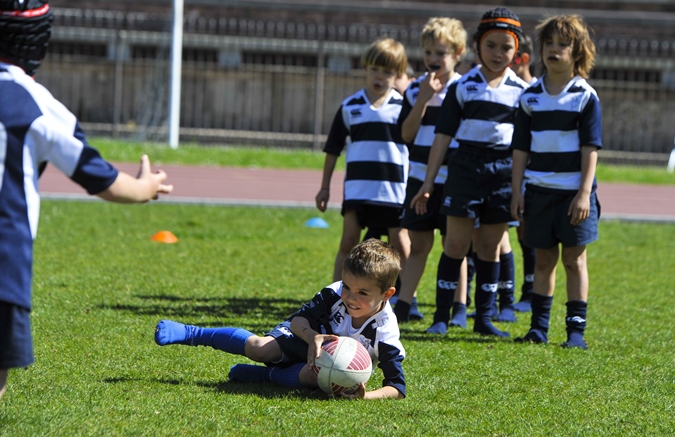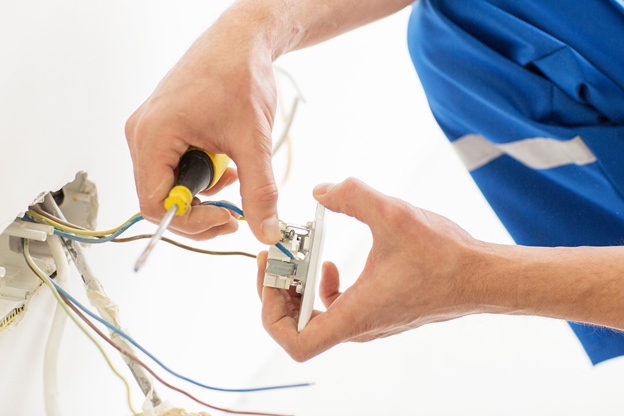Dale has haemophilia A, but that hasn’t stopped him trying anything and everything, from attempting rugby to playing basketball at a state level. Dale also goes on to tell us a bit about the different careers he’s had over the years. Now an electrician, he’s loving it and says it’s his dream job.
Dale shares his advice to others with a bleeding disorder, and parents of children with a bleeding disorder:
“There’s no reason why young people with bleeding disorders can’t live a normal and fulfilling life, like everyone else.”
Hey everyone, my name’s Dale. I live in Western Australia and I have severe haemophilia A,
which I am treating with a non-factor therapy on a prophylactic basis.
How did you approach your haemophilia as a child?
My approach to my haemophilia, from the age when I understood what was involved with it and how it affects me, was that I basically never let it stop me doing anything.
With no family history, there was obviously a bit of worry and apprehensiveness about my haemophilia in the earlier days, but as I got a bit older, everyone accepted it and my family never stopped me from doing things, even things that I probably shouldn’t have done. But I wanted to give everything a go and they wanted me to learn from my mistakes and see what my limits were.
So, I was very lucky that my parents had that kind of mentality and that was my upbringing.
How did you go playing sport?

The first sport I wanted to play was rugby league. My family is very heavily rugby league orientated, which is weird being from WA, because everyone asked, are you from the East states, are you? And I would say, no, I was born and bred in WA.
But I said to my parents I wanted to play, so they said, okay, we’ll take you down for the tryouts. So, I went down, did a bit of tackling with the bag and stuff like that. And at the end of it, decided it wasn’t for me. I was landing pretty heavily on the floor and decided to give up my rugby league dreams pretty early. But it was good because it was a choice that I was able to make for myself.
So, it was basketball for me. I played at a state level. The intensity of the games was pretty full on. The guys I was playing against were very good and really athletic.
I struggled a bit to keep up, my ankles being the way they were, and I’d come away from
a lot of games with twisted ankles and jarred fingers. And that was a risk that I knew I was taking. I wouldn’t say I regret it, but my ankles definitely are feeling it now.
How did you balance your work and your bleeding disorder?

My first job was actually building boat canopies and biminis. I’ve done campervan building,
I have done labouring.
My most notorious role was probably when I was a glazier. I did that for a very long time. And every time I told people about it, they were just gobsmacked that someone with a bleeding disorder could work with glass so much. But I enjoyed it. I was good at it. So that’s why I kept on with it.
I’m an electrician now. It’s been my dream job since I left school and I just got a bit lazy and veered away from it. But I finally came back to it and I’m very happy I did because it’s
a good job and it pays well.
Does your haemophilia have much impact on your work now?
I’m on non-factor therapy now and my health and my joints have felt better than ever. I have not had an issue with working 12-hour days, being on my feet all day, doing strenuous work.
My body has felt better than ever. I probably feel a little bit fitter and healthier than some of the guys that I work with onsite. So, I’m pretty grateful for that.
What advice would you like to give about having a bleeding disorder?
The best advice I could give someone with a bleeding disorder is don’t let your condition limit your choices.
Try something at least once. If it doesn’t work out, then at least you can say you tried. You only live once, and you’d rather feel fulfilled in your life than regret something for not giving it a go.
Advice I could give to parents with children with a bleeding disorder is don’t wrap your kids in cotton wool. Don’t let anyone else do it to them as well.
Children need to thrive and try things in their lives. My parents knew rugby wasn’t a good idea, but they allowed me to try it, and I worked out for myself that it wasn’t a good idea. But they supported me and that’s what was important to me.


